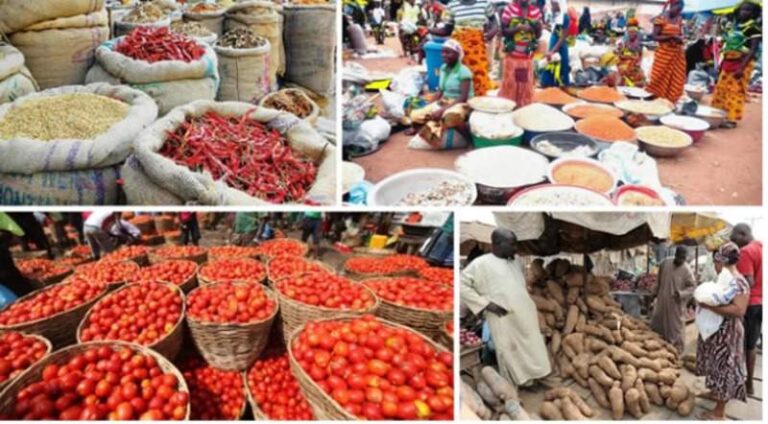In a recent report by the World Bank, Nigeria has been ranked as the fifth most affected country globally by food inflation.
This alarming position reflects a combination of several factors that have contributed to the rapid increase in food prices, exacerbating the nation’s food insecurity crisis.
In 2024, over one million additional Nigerians are experiencing severe food shortages compared to the previous year, bringing the total number of food-insecure individuals to a concerning level. This surge in food insecurity has been primarily driven by environmental factors and internal challenges such as insecurity in key agricultural regions.
According to the report, Nigeria is third in Africa, following Malawi and Liberia, which face even steeper food inflation rates.
Factors Driving the Crisis
The rapid escalation of food inflation in Nigeria has been attributed to several key elements:
Climate Change and Environmental Impact: Extreme weather events such as floods and droughts have wreaked havoc on Nigeria’s agricultural productivity. An estimated 1.6 million hectares of land have been submerged in floods, severely impacting food production across multiple states. These floods have affected croplands and displaced vulnerable populations, making it harder for the country to meet its food demands.
Insecurity in Agricultural Regions: Conflict in food-producing areas has worsened, particularly in the northern regions. Many farmers face threats of violence, which not only hinders agricultural activities but also leads to significant losses in food production. This has further driven up the prices of staple foods.
Soaring Food Prices: Nigeria has experienced one of the highest food inflation rates globally, with a year-on-year increase of 37.5% as of August 2024. This has made basic food items unaffordable for many households, especially those in low-income brackets. The rise in food prices has disproportionately affected the poorest segments of the population, making it difficult for them to access sufficient nutrition.
Impact on Nigerian Households
The effects of rising food prices have been devastating for millions of Nigerians. The steep increase in food costs has strained household incomes, forcing families to spend a larger portion of their earnings on basic necessities like rice, maize, and wheat. In some regions, families are now spending up to 60% of their income on food alone.
This crisis has also had significant repercussions for children, with malnutrition rates rising, particularly in rural areas.
The United Nations Food and Agriculture Organization (FAO) has warned that the number of children suffering from acute malnutrition has reached alarming levels, particularly in the northern parts of Nigeria.
Global Context and Comparisons
Nigeria is not alone in facing these challenges. Globally, 18 countries have experienced similar deteriorations in food security, with countries like Ethiopia and Yemen also seeing large increases in the number of people facing food crises.
However, Nigeria’s position as the fifth worst-hit country globally emphasizes the scale of the problem within its borders.
In comparison, Haiti, which tops the global ranking, experienced a 12% year-on-year increase in food prices. Other nations like Vietnam and Liberia also continue to face severe inflation in food costs.
This global context shows that while Nigeria’s challenges are severe, they are part of a wider trend of rising food insecurity across the world.
The Need for Immediate Action
The World Bank has emphasized the need for urgent interventions to tackle Nigeria’s food insecurity crisis. Immediate action is required to ensure that vulnerable populations receive the food assistance they need.
In the longer term, investments in agricultural productivity, infrastructure, and climate resilience are crucial to mitigating future crises.
Experts have also suggested that Nigeria must prioritize the rehabilitation of its agricultural sector. Strengthening security in farming regions, improving market access for farmers, and supporting climate-adaptive agricultural practices are some of the recommended strategies to address the country’s food inflation crisis.

